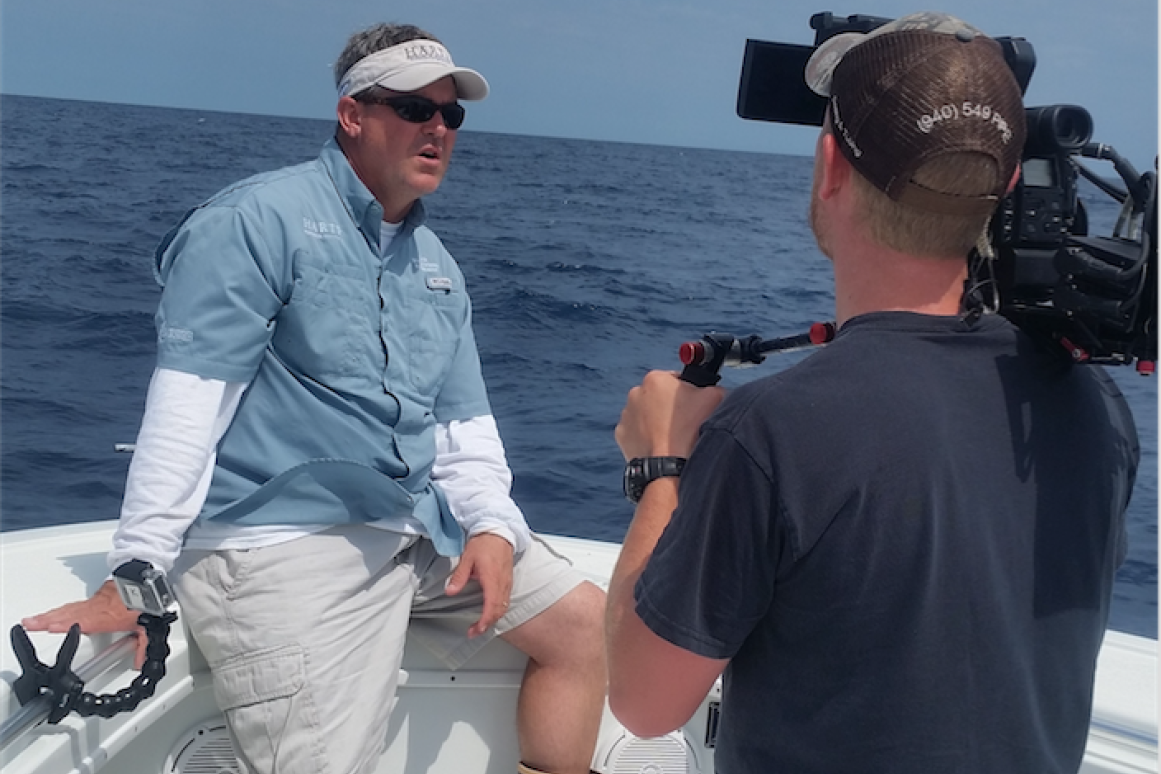Watch HRI's Dr. Greg Stunz Speak at TEDxSanAntonio

HRI’s Dr. Greg Stunz, Chair for Fisheries and Ocean Health and Director of the Center for Sportfish Science and Conservation (CSSC) challenged listeners’ perceptions of sharks and their conservation status during a talk at the 2016 Spring TEDxSanAntonio Main Event Saturday, March 5 at Rackspace Global Headquarters. That talk was recorded and is available on the TEDxSanAntonio YouTube page, or can be viewed below.
Dr. Stunz’s talk, “Save the… Sharks?!” challenges historical perceptions of these animals as dangerous predators and discuss their worldwide decline, providing predictions using unique data sets from a long-standing fishing tournament along the northern Gulf of Mexico.
Dr. Stunz is marine biologist specializing in fisheries ecology and sport-fisheries at HRI, and a major goal of his research program is to provide scientific data for sustainable management of our marine fisheries and ocean resources to ensure healthy environments. The diverse program currently focuses on migration patterns marine life using a variety of state-of-the-art electronic tracking devices, diving and ROV studies of artificial reefs in the Gulf of Mexico, and the understanding the vital role that estuaries and near-shore waters play in sustaining marine populations.
Sharks, as apex predators, play an especially key role and understanding their conservation status is an important indicator of the overall health of the Gulf ecosystem. Working with fishermen as citizen scientists, CSSC has tagged more than 2,500 sharks along the Texas coast over the past six years. CSSC’s tagging ranges from simple and prolific to using the latest technology to track sharks in real time online.
CSSC supplies local fishermen with simple, cheap tags outfitted with a unique ID number. Tagged sharks are identified, measured and released and the catch location is recorded. After that, CSSC can track sharks that have been recaptured, determining patterns in capture locations and seasons to understand migration and habitat use by sharks. The center also outfits sharks with acoustic tags, surgically implanted internal tags that regularly sends out sound signals. With the help of a network of “listening” receivers placed in coastal inlets, scientists can track the sharks’ movement patterns over multiple years. Finally, the center also employs state-of-the-art satellite tags attached to the shark’s dorsal fin that pings with a location each time the shark surfaces. This provides swift and accurate information about the shark’s current location, which is uploaded to a digital map so millions of shark fans can follow the shark’s movements online.
Follow Dr. Stunz on Facebook and Twitter or learn more about the Center for Sportfish Science and Conservation at SportfishCenter.org.
The TEDxSanAntonio event, themed “You Think You Know,” presented a range of topics —from humanitarian aid to sharks and rockets — designed to inspire attendees to think and enabling them to know. The goal is to give a global perspective with local relevance, all packaged in an entertaining, fast-paced day of TED-style talks. For more information visit tedxsanantonio.com.
